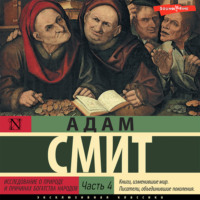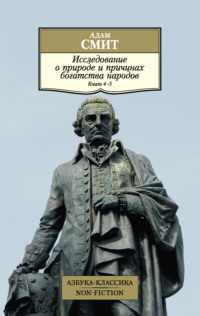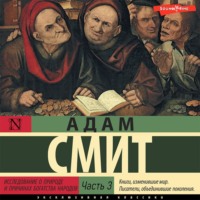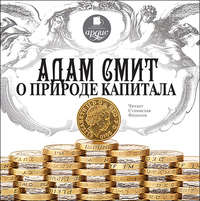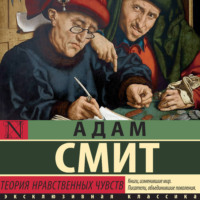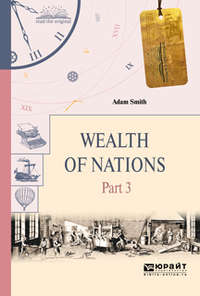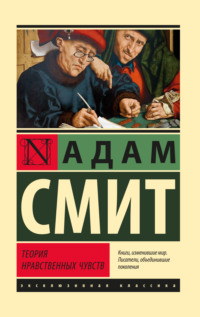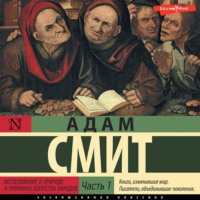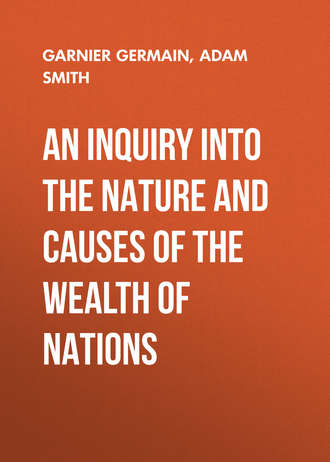 полная версия
полная версияAn Inquiry Into the Nature and Causes of the Wealth of Nations
These assertions are almost all incontestible, and capable of a rigorous demonstration; and those who have attempted to shew their falsity, have, in general, opposed them only with idle sophistry. Why, then, has this doctrine met with so little success, and why does every day diminish its reputation? because it agrees in no one point with the moral condition, either of societies or of individuals; because it is continually contradicted by experience, and by the infallible instinct of self-interest; because it does not possess that indispensible sanction of all truths, utility. In fact, of what consequence is it, that the labour of agriculture produces not only what covers its own expenses, but new beings which would never have existed without it, and that it has this advantage over the labour of manufactures and commerce? Does it by any means follow from this, that the former kind of labour is more profitable to the community than the latter? The real essence of all wealth, and that which determines its value, is the necessity under which the consumer lies to purchase it; for, in truth, there is no such thing as wealth properly so called, nor absolute value; but the words wealth and value are really nothing more than the co-relatives of consumption and demand. Even the necessaries of life, in a country which is inhabited, but incapable of commercial intercourse, will not form wealth; and to whatever degree of civilization that country may have reached, still the same principle will hold without alteration. If the sum of national wealth shall in any case have exceeded the sum of demands, then a part of the former sum will cease to bear the name of wealth, and will again be without value. In vain, then, will agriculture multiply her produce; for the instant that it exceeds the bounds of actual consumption, a part will lose its value; and self-interest, that prime director of all labour and industry, seeing herself thus deceived in her expectations, will not fail to turn her activity and efforts to another quarter.
In almost every instance, it is an idle refinement to distinguish between the labour of those employed in agriculture, and of those employed in manufactures and commerce; for wealth is necessarily the result of both descriptions of labour, and consumption can no more take place independently of the one, than it can independently of the other. It is by their simultaneous concurrence that any thing becomes consumable, and, of course, that it comes to constitute wealth. How then are we entitled to compare their respective products, since it is impossible to distinguish these in the joint product, and thus appreciate the separate value of each? The value of growing wheat results as much from the industry of the reaper who gathers it in, of the thrasher who separates it from the chaff and straw, of the miller and baker who convert it successively into flour and bread, as it does from that of the ploughman and of the sower. Without the labour of the weaver, the raw material of flax would lose all its value, and be regarded as no way superior to the most useless weed that grows. What then can we gain by any attempts to determine which of these two species of labour conduces most to the advancement of national wealth; or, are they not as idle, as if we busied ourselves in inquiring, whether the right or the left foot is the most useful in walking?
It is true, indeed, that in every species of manufacture, the workman adds to the value of the raw material a value exactly equal to that which was expended during the process of manufacture; and what is the conclusion we are to draw this? It is merely, that a certain exchange has taken place and that the food consumed by the manufacturer is now represented by the increase of value resulting from his manual labour. Thus wool, when converted into cloth, has gained a value precisely equal to that expended by the manufacturer during the conversion. But, if it is shown that, without this exchange, the wool would have remained without value, while, on the other hand, the food of the manufacturer would have been without a consumer; it will then appear, that this exchange has, in fact, done what is equivalent to creating these two values, and that it has proved to the society an operation infinitely more useful, than if an equal quantity of labour had been spent in the increase of that rude produce, which already existed in overabundance. The first description of labour has been truly productive; while the last would have been altogether unproductive, since it would not have created any value.
'The soil,' say the economists, 'is the source of all wealth.' But, to prevent this assertion from leading us into erroneous conclusions, it will be necessary to explain it. The materials of all wealth originate primarily in the bosom of the earth; but it is only by the aid of labour that they can ever truly constitute wealth. The earth furnishes the means of wealth; but wealth itself cannot possibly have any existence, unless through that industry and labour which modifies, divides, connects, and combines the various productions of the soil, so as to render them fit for consumption. Commerce, indeed, regards those rude productions as real wealth; but it is only from the consideration, that the proprietor has it always in his power to convert them, at will, into consumable goods, by submitting them to the necessary operations of manufacture. They possess, as yet, merely the virtual value of a promissory-note, which passes current, because the bearer is assured that he can, at pleasure, convert it into cash. Many gold mines, which are well known, are not worked, because their whole produce would not cover the incidental expenses; but the gold which they contain is, in reality, the same with that of our coin; and yet no one would be foolish enough to call it wealth, for there is no probability it will ever be extracted from the mine, or purified; and, of course, it possesses no value. The wild fowl becomes wealth the moment it is in the possession of the sportsman; while those of the very same species, that have escaped his attempts, remain without any title to the term.
It is further, without question, true, that all who do not possess property in land must draw their subsistence from wages received, directly or indirectly, from the proprietors, unless they violate all rights, and become robbers. In this respect, every service is alike; the most honourable and the most disgraceful receives each its wages. It is certain, too, that if the circumstances determining the rate of the various kinds of wages remain the same, that is if the offers of service, and the demand, preserve the same proportion to each other, after as well as before the imposition of a tax; then, of course, the wages will continue at the same rate, and thus the tax, however imposed, will uniformly, in the end, fall on that class in the community who furnish the wages; so that they must suffer, either an addition to their former expenses, or a retrenchment of those luxuries they enjoyed. And according as the tax is less directly levied, the greater will be the burden they are subjected to; for besides indemnifying all the other classes who have advanced the tax-money, a further expense must be incurred, in the additional number of persons now necessary to collect it. The natural conclusion we must draw from the theory is, that a tax, directly levied on the neat revenue of the land proprietors, is that which agrees best with reason and justice, and that which bears lightest on the contributors.
If, however, this theory should be found to throw entirely out of consideration a multitude of circumstances, which possess a powerful influence over the facility of collecting a tax, as well an over its consequences; and if the general result of this influence be of far more importance than the single advantage of a less burden; then the theory, inasmuch as it neglects a part of those particulars which have their weight in the practice, is contradicted by this last. And this is exactly what happens in the question respecting the comparative advantages and inconveniencies of the two modes of levying taxes.
The habit which men have acquired, of viewing money as the representation of every thing which contributes to the support or comfort of life, makes them naturally very unwilling to part with what portion of it they possess, unless it be to procure some necessary or enjoyment. We spend money with pleasure, but it requires an effort to pay a debt, and particularly so when the value received in exchange is not very obvious to the generality, as in the case of a tax. But by levying the tax on some object of consumption, by thus confounding it with the price of the latter, and by making the payment of the duty and of the price of enjoyment become one and the same act, we render the consumer desirous to pay the impost. It is amid the profusion of entertainments, that the duties on wine, salt, &c. are paid; the public treasury thus finding a source of gain in the excitements to expense produced by the extravagance and gaiety of feasts.
Another advantage of the same nature, possessed by the indirect mode of taxation, is its extreme divisibility into minute parts, and the facility which it affords to the individual, of paying it off day by day, or even minute by minute. Thus the mechanic, who sups on a portion of his day's wages, will sometimes in one quarter of an hour, pay part of four or five different duties.
In the plan of direct taxation, the impost appears without any disguise; it comes upon us unexpectedly, from the imprudence so common to the bulk of mankind, and never fails to carry with it constraint and discouragement.
All these considerations are overlooked by the friends of direct taxation; and yet their importance must be well known to all who have ever attended to the art of governing men.
But, perhaps, this is not all. An indirect tax, by increasing from time to time the price of the objects of general consumption, when the members of the community have contracted the habit of this consumption, renders these objects a little more costly, and thus gives birth to that increase of labour and industry which is now required to obtain them. But if this tax be so proportioned as not to discourage the consumption, will it not then operate as a universal stimulus upon the active and industrious part of the community? Will it not incite that part to redoubled efforts, by which it may still enjoy those luxuries which, by habit, have become almost necessaries, and, of course, produce a further developement of the productive powers of labour, and of the resources of industry? Are we not, in such a case, to conclude, that after the imposition of a tax, there will exist not only the quantity of labour and industry which was formerly requisite to procure the necessaries and habitual enjoyments of the active class of mankind, but also such an addition to this, as will suffice for the payment of the tax? And will not this tax, or increase of produce required for the tax – as it is spent by the government that receives it – will it not serve to support a new class of consumers, requiring a variety of commodities which the impost enables them to pay? If these conjectures are well founded, it will follow, that indirect taxation, far from having any hurtful influence on wealth and population, must, when wisely regulated, tend to increase and strengthen these two great foundations of national prosperity and power. And it will tend to do this, inasmuch as it bears immediately on the body of the people, and operates on the working and industrious class, which forms the active part of the community; while, on the other hand, direct taxation operates solely on the idle class of landed proprietors – which furnishes us with the characteristic difference existing between these two modes of taxation.5 These hints, which seem to afford an explanation of that most extraordinary phenomenon in political economy, viz. the rapid and prodigious increase of wealth in those nations which are most loaded with indirect taxes, deserve to be discussed at greater length than our limits will allow. Enough, however, has been said to shew, that no rigorous and purely mathematical calculation will ever enable us to appreciate the real influence of taxes upon the prosperity of a nation. Thus, some of the truths perceived by the economists are of little use in practice; while others are found to be contradicted in their application, by those accessory circumstances which were overlooked in the calculations of the theory.
While this sect of philosophers filled all Europe with their speculations, an observer of more depth and ability directed his researches to the same subject, and laboured to establish, on a true and lasting foundation, the doctrines of political economy.
Dr. Smith succeeded in discovering a great truth, – the most fruitful in consequences, the most useful in practice, the origin of all the principles of the science, and one which unveiled to him all the mysteries of the growth and distribution of wealth. This great man perceived, that the universal agent in the creation of wealth is labour; and was thence led to analyse the powers of this agent, and to search after the causes to which they owe their origin and increase.
The great difference between the doctrine of Smith and of the economists, lies in the point from which they set out, in the reduction of their consequences. The latter go back to the soil as the primary source of all wealth; while the former regards labour as the universal agent which, in every case, produces it. It will appear, at first sight, how very superior the school of the Scotch professor is to that of the French philosophers, with regard to the practical utility, as well as to the application of its precepts. Labour is a power of which man is the machine; and, of course, the increase of this power can only be limited by the indefinite bounds of human intelligence and industry; and it possesses, like these faculties, a susceptibility of being directed by design, and perfected by the aid of study. The earth, on the contrary, if we set aside the influence which labour has over the nature and quantity of its productions, is totally out of our power, in every respect which can render it more or less useful – in its extent, in its situation, and in its physical properties.
Thus the science of political economy, considered according to the view of the French economists, must be classed with the natural sciences, which are purely speculative, and can have no other end than the knowledge of the laws which regulate the object of their researches; while, viewed according to the doctrine of Smith, political economy becomes connected with the other moral sciences, which tend to ameliorate the condition of their object, and to carry it to the highest perfection of which it is susceptible.
A few words will suffice to explain the grounds of the doctrine of Smith. The power by which a nation creates its wealth is its labour; and the quantity of wealth created will increase in direct proportion as the power increases. But the increase of this last may take place in two ways – in energy, and in extent. Labour increases in energy, when the same quantity of labour furnishes a more abundant product; and the two great means of effecting the increase, or of perfecting the productive powers of labour, are the division of labour, and the invention of such machines as shorten and facilitate the manual operations of industry. Labour increases in extent, when the number of those engaged in it augments in proportion to the increasing number of the consumers, which can take place only in consequence of an increase of capitals, and of those branches of business in which they are employed.
Now, to accomplish the increase of labour in both these ways, and to conduct it gradually to the utmost pitch of energy and extent to which it can reach in any nation, considering the situation, the nature, and the peculiarities of its territories, what are the exertions to be made by its government? The subdivision of labour, and the invention and perfecting of machines. These two great means of augmenting the energy of labour, advance in proportion to the extent of the market, or, in other words, in proportion to the number of exchanges which can be made, and to the ease and readiness with which these can take place. Let the government, then, direct all its attention to the enlargement of the market, by forming safe and convenient roads, by the circulation of sterling coin, and by securing the faithful fulfilment of contracts; all of which are indispensible measures, at the same time that, when put in practice, they will never fail to attain the desired end. And the nearer a government approaches to perfection in each of these three points, the more certainly will it produce every possible increase of the national market. The first of the three means is, without doubt, the most essential, as no other expedient whatever can possibly supply its place.
The gradual accumulation of capitals is a necessary consequence of the increased productive powers of labour, and it becomes also a cause of still farther increase in these powers; but, in proportion as this accumulation becomes greater and greater, it serves to increase the extent of labour, inasmuch as it multiplies the number of labourers, or the sum of national industry. This increase, however, of the number of hands in the nation employed, will always be regulated by the nature of the business to which the capitals are dedicated.
Under this second head of the increase of the products of labour, the exertions of government are much more easy. In fact, it has only to refrain from doing harm. It is only required of it, that it shall protect the natural liberty of industry; that it shall leave open every channel into which, by its own tendencies, industry may be carried; that government shall abandon it to its own direction, and shall not attempt to point its efforts one way more than another; for private interest, that infallible instinct which guides the exertions of all industry, is infinitely better suited than any legislator to judge of the direction which it will with most advantage follow. Let government, then, renounce alike the system of prohibitions and of bounties; let it no longer attempt to impede the efforts of industry by regulations, or to accelerate her progress by rewards; let it leave in the most perfect freedom the exertions of labour and the employment of capital; let its protecting influence extend only to the removal of such obstacles as avarice or ignorance have raised up to the unlimited liberty of industry and commerce; – then capitals will naturally develope themselves, by their own movement, in those directions which are at once most agreeable to the private interest of the capitalist, and most favourable to the increase of the national wealth.
METHOD OF FACILITATING THE STUDY OFDR. SMITH'S WORKSuch are the results of the doctrine of Smith, and the fruits we are to reap from his immortal work. The proofs of the principle upon which his opinions are grounded, and the natural and easy manner in which his deductions flow from it, give it an air of simplicity and truth, which render it no less admirable than convincing. This simplicity, however, to be fully perceived, requires much study and consideration; for it cannot be denied that the 'Wealth of Nations' exhibits a striking instance of that defect for which English authors have so often been blamed, viz. a want of method, and a neglect, in their scientific works, of those divisions and arrangements which serve to assist the memory of the reader, and to guide his understanding. The author seems to have seized the pen at the moment when he was most elevated with the importance of his subject, and with the extent of his discoveries. He begins, by displaying before the eyes of his reader the innumerable wonders effected by the division of labour; and with this magnificent and impressive picture, he opens his course of instructions. He then goes back, to consider those circumstances which give rise to or limit this division; and is led by his subject to the definition of values – to the laws which regulate them, to the analysis of their several elements, and to the relations subsisting between those of different natures and origin; all of which are preliminary ideas, which ought naturally to have been explained to the reader before exhibiting to him the complicated instrument of the multiplication of wealth, or unveiling the prodigies of the most powerful of its resources.
On the other hand, he has often introduced long digressions, which interrupt the thread of his discussion, and, in many cases, completely destroy the connection of its several parts. Of this description is the digression
On the variations in the value of the precious metals during the four last centuries, with a critical examination of the opinions that their value is decreasing – book 1, chap. xi.
Upon banks of circulation and paper money – book 2, chap. ii.
Upon banks of deposit, and particularly that of Amsterdam – book 4, chap. iii.
Upon the advantage of seignorage in the coining of money – book 4, chap. vi.
Upon the commerce of grain, and the laws regarding this trade – book 4, chap. v.
These different treatises, although they are unquestionably the best that have ever been written on the subjects to which they relate, are, however, so introduced, as to distract the reader's attention – to make him lose sight of the principal object of the work – and to lessen the general effect of it as a whole.
To remedy, as far as I am able, these inconveniencies, and to facilitate to beginners the study of the doctrine of Smith, I have thought proper to point out the order which appears to me most agreeable to the natural progress of ideas, and, on this account, best calculated for the purpose of instruction.
I would begin by remarking, that the whole doctrine of Smith, upon the origin, multiplication, and distribution of wealth, is contained in his two first books; and that the three others may be read separately, as so many detached treatises, which, no doubt, confirm and develope his opinions, but do not by any means add to them.
The third book is an historical and political discussion on the progress which wealth would make in a country where labour and industry were left free; and upon the different causes which have tended, in all the countries of Europe, to reverse this progress.
In the fourth book, the author has endeavoured to combat the various systems of political economy which were popular previous to his time; and, in a particular manner, that which is denominated the mercantile system, which has exercised so strong an influence over the financial regulations of the European governments, and particularly over those of England.
In the fifth and last book, he considers the expenses of government; the most equitable and convenient modes of providing for these expenses; and lastly, public debts, and the influence they have over national prosperity.
The three last books may be read and studied in the same order and arrangement in which they were written, without any difficulty, by one who is completely master of the general doctrine contained in the two first.
I regard, then, the two first books, as a complete work, which I would divide into three parts.
The 1st relates to values in particular. It contains their definition; the laws which regulate them; the analysis of the elements which constitute a value, or enter into its composition; and the relations which values of different origin bear to each other.
The 2d part treats of the general mass of national wealth, which is here divided into separate classes, according to its destination or employment.
The 3d and last part explains the manner in which the growth and distribution of national wealth takes place.
PART FIRST. – OF VALUES IN PARTICULAR
The essential quality which constitutes wealth, and without which it would not be entitled to the name, is its exchangeable value.
Exchangeable value differs from the value of utility – book 1, end of chap. iv.
The relation existing between two exchangeable values, when expressed by a value generally agreed upon, is denominated price.
The value generally agreed on among civilized nations, is that of metals. Motives to this preference. Origin of money – book 1, chap. iv. Relation between money and the metal in the state of bullion – book 1, chap. v.


